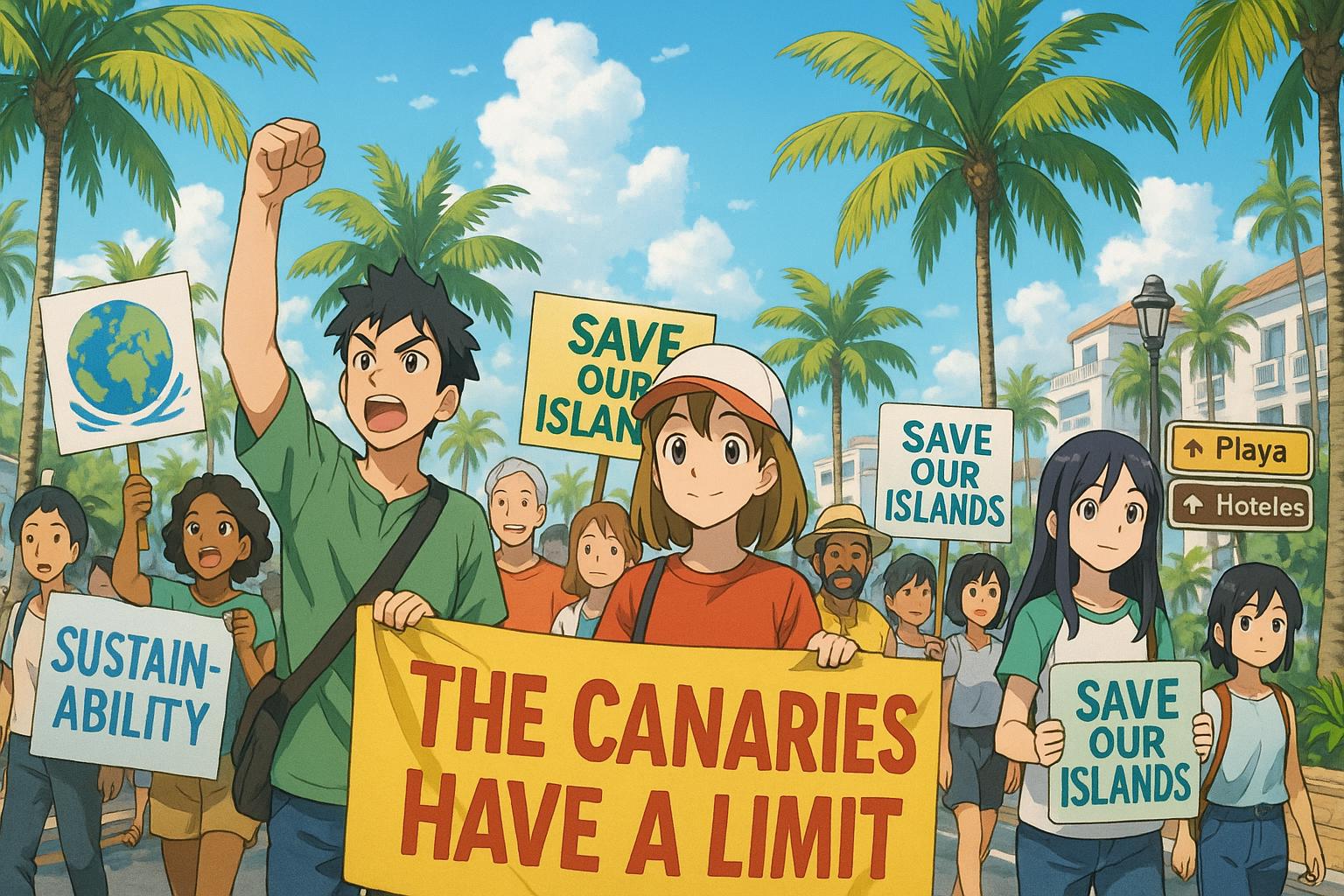Amid widespread anti-tourism protests in the Canary Islands, UK tourist bookings to Spain have experienced a surprising uptick. The weekend saw a significant turnout of demonstrators, with estimates suggesting up to 123,000 participants took to the streets under the banner "The Canaries Have a Limit." Their grievances centre on issues including overcrowding, environmental degradation, and soaring housing costs—concerns that protesters argue threaten the islands' sustainability.
Despite the escalating tensions, many British holidaymakers report positive experiences. One recent traveller returning from Benidorm expressed, “No problems, Spanish people were great and had a great time.” This sentiment echoes that of others who remarked on the vibrancy and hospitality of Spain, suggesting that the ongoing unrest may not significantly deter tourists in the immediate future.
The protests, however, underscore a broader debate regarding the impact of mass tourism on local communities. In 2023, the Canary Islands welcomed approximately 13.9 million visitors—about six times the islands’ resident population of 2.2 million. The tourism industry supports around 40% of local jobs; UK tourists represent a substantial market alongside German visitors. Nonetheless, the recent protests highlight the urgent calls from local residents for a transition towards a tourism model that prioritises sustainability and community needs over unchecked growth and investor interests.
Historically, tourism has been a double-edged sword for the Canaries. Organised by a coalition of environmental groups, the demonstrations not only aim to limit tourist numbers but also seek to address the adverse effects of mass tourism, particularly in the areas of environmental preservation and housing costs. For example, activists have expressed concern over the high water usage and pollution linked to tourism activities. The local tourism minister has urged British holidaymakers not to cancel their trips, assuring them that the islands remain open for business and that local authorities continue to welcome visitors.
As tensions simmer, some Britons have suggested that a rethink of school holiday scheduling could reduce pressure on popular destinations during peak seasons, allowing for a more balanced spread of tourism throughout the year. This could alleviate some stress on local infrastructures while simultaneously benefitting families financially.
Comments from other social media users indicate a belief that the protests might be counterproductive, questioning the potential economic implications of a prolonged downturn in tourist numbers. Some note the need for local economies, heavily reliant on British visitors, to adapt and respond constructively to these challenges rather than alienate their traditional clientele.
Equipped with both optimism and concerns, UK travellers appear to remain undeterred by the backdrop of protest, suggesting a complex relationship that merits further examination as both sides navigate the pressures of tourism in an increasingly crowded global landscape. As protests continue, the future of tourism in the Canary Islands hangs in the balance, calling for a thoughtful dialogue between residents, businesses, and visitors alike.
Reference Map
- Paragraphs 1, 2, 3
- Paragraphs 4, 5
- Paragraphs 6, 7
- Paragraph 8
- Paragraph 9
- Paragraph 10
- Paragraph 11
Source: Noah Wire Services
